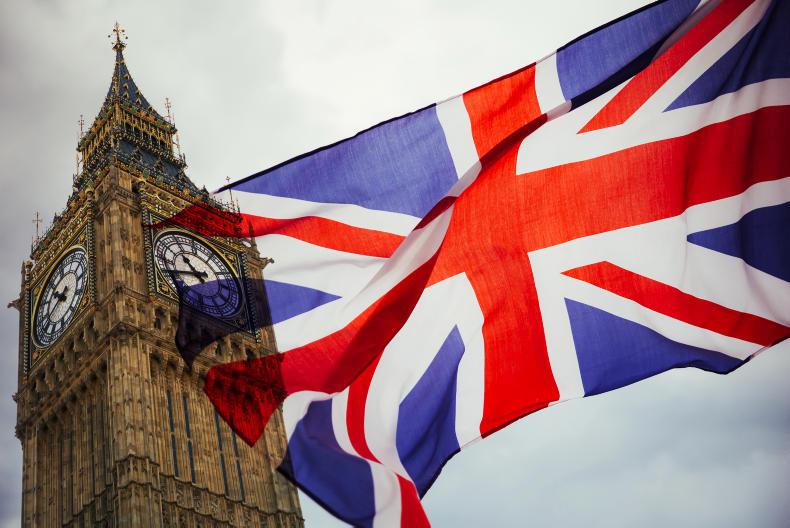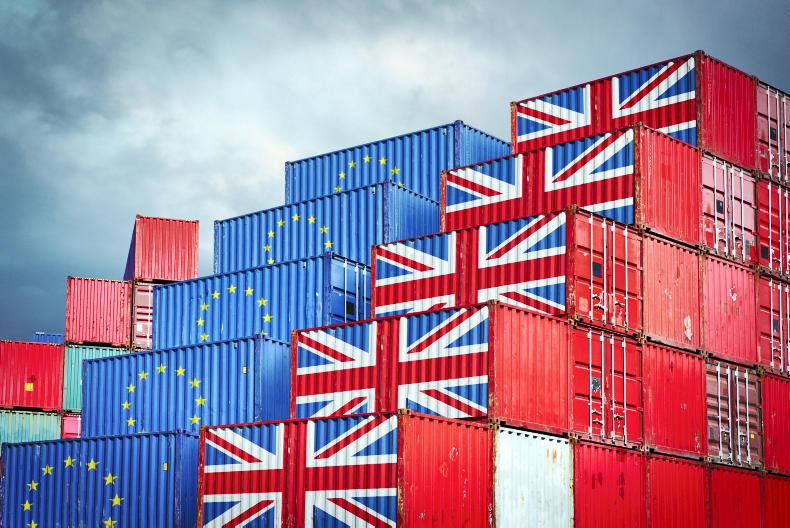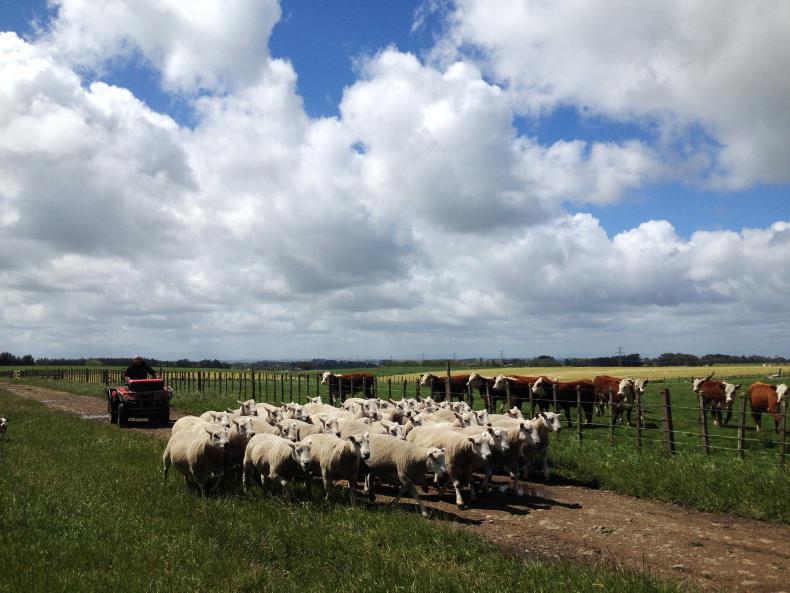With Australia’s trade minister reported as being on his way to the UK next week, there are expectations that a trade deal between the two countries is getting close.
The UK is also at an advanced stage of negotiation with New Zealand and the common interest for Irish farmers in these negotiations is access for agricultural produce.
Australia and New Zealand are the top two exporters of sheepmeat in the world, accounting for 70% of global exports between them.
While New Zealand has a 228,000t sheepmeat quota (to the EU when the UK was a member), Australia has a quota for just 19,100t. Access
Access for beef and sheepmeat, along with wine, are the main ambitions for Australian negotiators.
Additional beef and sheep supplies on the UK market will create additional direct competition for Irish exports.
Despite the volume of Australian beef and sheepmeat being low at present due to restocking, lamb carcase values are running at the equivalent of €5.25/kg.
Irish prices are currently above €8/kg for lambs and €7.70/€7.80kg for hoggets, driven by the combination of tight supplies in Europe and the major Christian and Muslim festivals of Easter and Ramadan taking place within a few weeks of each other.
UK open to exports so long as standards are met
Surprisingly, the UK trade and agriculture advisory committee recently decided to recommend to the UK department for trade that trade deals should allow access without tariffs and without quotas, providing standards were the same.

Increased access to the British market for other third countries means more competition for Irish exports.
With this industry- and farmer-led body making such a representation, the way is clear for the UK government to grant whatever level of access it likes to the UK market, as is its right post-EU membership.
The EU trade and co-operation agreement (TCA) between the EU and UK agreed on Christmas Eve is also based on these conditions; trade on a quota-free and tariff-free basis either way.
Therefore, the scenario can now arise where unlimited volumes of Australian sheepmeat with a farmgate price dramatically below the UK value can enter the UK market.
If this displaces British-origin sheepmeat with consumers, British lamb can be exported to the EU in unlimited quantities.
All of this means that the EU market is very exposed to the trade deals entered into independently by the UK.
EU trade deal with Australia and NZ
Parallel to the UK negotiations with Australia and New Zealand is the negotiation between the EU and both countries.

Both the EU and UK are separately negotiating trade deals with Australia and New Zealand.
The requests from Australia and New Zealand are the same - enhanced access for wine, beef and, in the case of Australia, sheepmeat.
While EU negotiators will be mindful of Europe’s reduced capacity for absorbing additional meat, the reality is that there will be an expectation from both countries for enhanced access.
This, combined with the UK independently and separately increasing access to its market, leaves the competition for Irish exports greatly increased.
Read more
First step to global trade policy by UK
UK membership of Pacific trade bloc will stiffen market competition
UK looks to join Pacific trade agreement
Beef and sheep will pay for success of EU trade deals
With Australia’s trade minister reported as being on his way to the UK next week, there are expectations that a trade deal between the two countries is getting close.
The UK is also at an advanced stage of negotiation with New Zealand and the common interest for Irish farmers in these negotiations is access for agricultural produce.
Australia and New Zealand are the top two exporters of sheepmeat in the world, accounting for 70% of global exports between them.
While New Zealand has a 228,000t sheepmeat quota (to the EU when the UK was a member), Australia has a quota for just 19,100t. Access
Access for beef and sheepmeat, along with wine, are the main ambitions for Australian negotiators.
Additional beef and sheep supplies on the UK market will create additional direct competition for Irish exports.
Despite the volume of Australian beef and sheepmeat being low at present due to restocking, lamb carcase values are running at the equivalent of €5.25/kg.
Irish prices are currently above €8/kg for lambs and €7.70/€7.80kg for hoggets, driven by the combination of tight supplies in Europe and the major Christian and Muslim festivals of Easter and Ramadan taking place within a few weeks of each other.
UK open to exports so long as standards are met
Surprisingly, the UK trade and agriculture advisory committee recently decided to recommend to the UK department for trade that trade deals should allow access without tariffs and without quotas, providing standards were the same.

Increased access to the British market for other third countries means more competition for Irish exports.
With this industry- and farmer-led body making such a representation, the way is clear for the UK government to grant whatever level of access it likes to the UK market, as is its right post-EU membership.
The EU trade and co-operation agreement (TCA) between the EU and UK agreed on Christmas Eve is also based on these conditions; trade on a quota-free and tariff-free basis either way.
Therefore, the scenario can now arise where unlimited volumes of Australian sheepmeat with a farmgate price dramatically below the UK value can enter the UK market.
If this displaces British-origin sheepmeat with consumers, British lamb can be exported to the EU in unlimited quantities.
All of this means that the EU market is very exposed to the trade deals entered into independently by the UK.
EU trade deal with Australia and NZ
Parallel to the UK negotiations with Australia and New Zealand is the negotiation between the EU and both countries.

Both the EU and UK are separately negotiating trade deals with Australia and New Zealand.
The requests from Australia and New Zealand are the same - enhanced access for wine, beef and, in the case of Australia, sheepmeat.
While EU negotiators will be mindful of Europe’s reduced capacity for absorbing additional meat, the reality is that there will be an expectation from both countries for enhanced access.
This, combined with the UK independently and separately increasing access to its market, leaves the competition for Irish exports greatly increased.
Read more
First step to global trade policy by UK
UK membership of Pacific trade bloc will stiffen market competition
UK looks to join Pacific trade agreement
Beef and sheep will pay for success of EU trade deals








 This is a subscriber-only article
This is a subscriber-only article










SHARING OPTIONS: